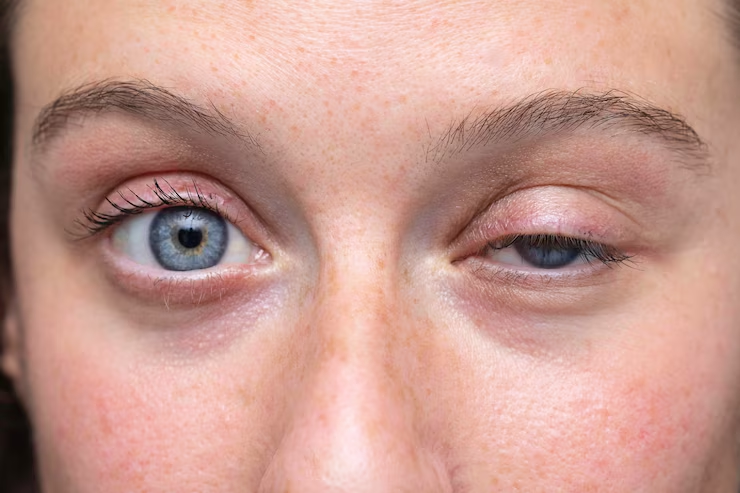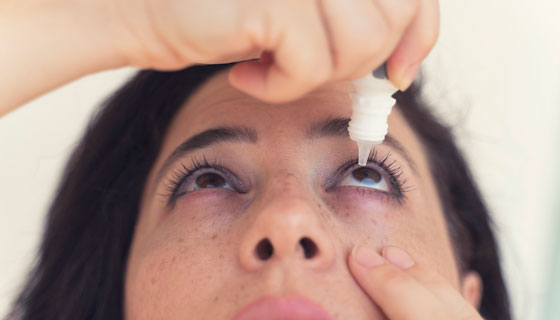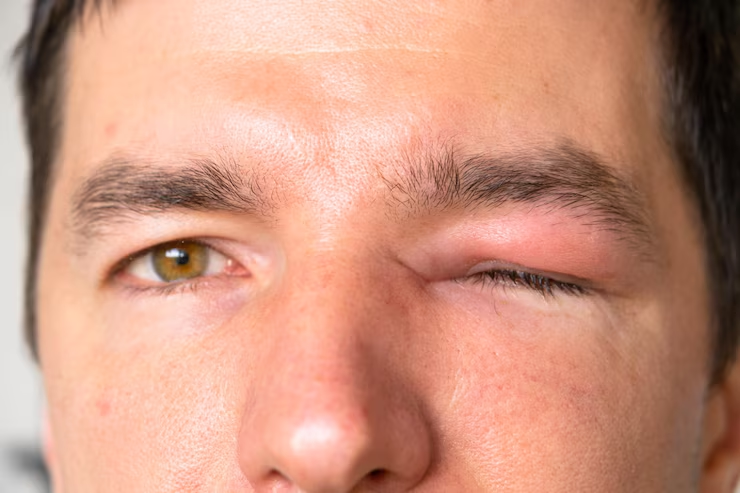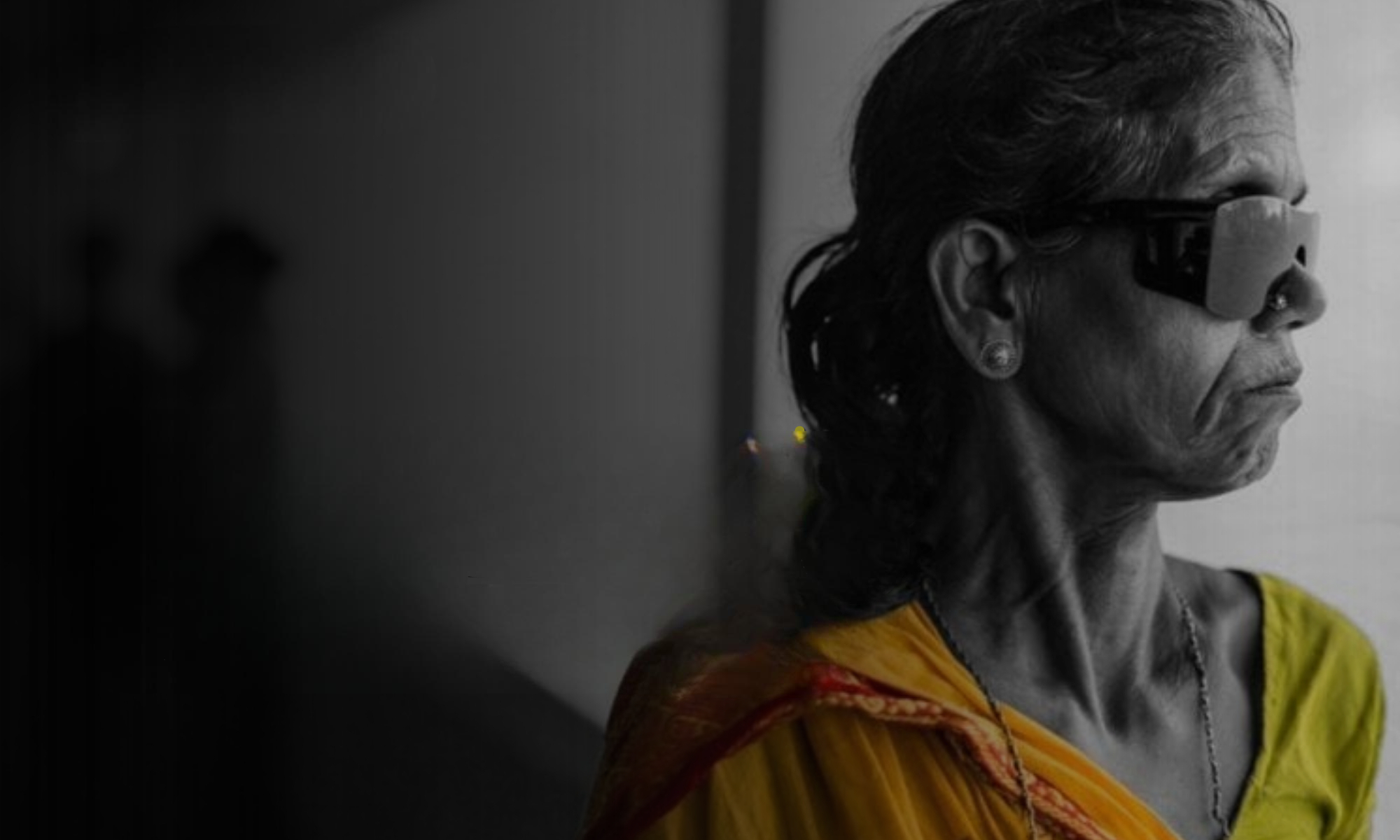Woke up with puffy eyes again? Swollen eyelids can be uncomfortable and worrying. Whether it’s from a late night, allergies, or something more serious, you’re not alone in dealing with this pesky problem.
In this blog, we’ll dive into the common causes of swollen eyelids and share some easy home remedies you need to handle swollen eyelids and keep them from coming back. So, let’s get those eyes looking bright and feeling right!
Contents
Understanding Swollen Eyelids
Swollen eyelids can be more than just an aesthetic concern; they often come with discomfort and can disrupt your day-to-day activities. This condition, where the eyelids appear puffy or inflamed, might be accompanied by symptoms such as redness, itchiness, and sometimes pain.
Such eyelid swelling can result from a variety of causes ranging from simple factors like lack of sleep or excessive crying to more complex medical conditions like infections, allergies, or even thyroid diseases.
Common Causes of Swollen Eyelids

Swollen eyelids can stem from a variety of sources, ranging from mild irritations to more serious health conditions. Understanding these can help you identify potential triggers and address the root cause more effectively. Here are some of the most common culprits:
- Allergies: One of the most frequent causes of eyelid swelling is an allergic reaction. Allergens like pollen, pet dander, or certain cosmetics can trigger responses from your immune system, leading to inflammation and swelling.
- Infections: Conditions such as conjunctivitis (pink eye) or blepharitis (an inflammation of the eyelid) can cause significant eyelid swelling. These infections may be bacterial or viral, and they often come with other symptoms like redness, itchiness, and discharge.
- Fluid Retention: Sometimes, fluid buildup overnight, especially after consuming high amounts of salt or crying, can lead to swollen eyelids. This type of swelling usually resolves on its own throughout the day.
- Injuries: Any trauma to the eye area, including bruising or injury from cosmetic procedures (like eyelash extensions), can cause immediate swelling.
- Styes: These are painful, pimple-like bumps caused by a bacterial infection in the oil glands of the eyelid. A stye can cause the whole eyelid to swell.
- Chalazion: This is a blocked oil gland that can cause a small, painless lump on the eyelid that might swell at times.
- Thyroid Eye Disease: Associated with thyroid problems, this condition can lead to inflammation and swelling of the eyelids and other eye structures.
- Kidney or Heart Conditions: These systemic issues can lead to fluid retention, including in the eyelids, as part of their range of symptoms.
If you suspect your swollen eyelids are due to an underlying health issue, it’s essential to consult with a healthcare provider for proper diagnosis and treatment.
Immediate Relief: Quick Fixes for Swollen Eyelids

When you wake up with swollen eyelids, or they become inflamed during the day, you want relief—and fast. Here are some simple, effective home remedies that can provide immediate comfort and reduce swelling:
- Cold Compresses: Apply a cold compress or chilled cucumber slices to your closed eyelids. You can also use chilled tea bags, as the tannins in tea can help tighten the skin and draw out fluid.
- Proper Hygiene: Keeping the eyelid area clean is crucial, especially if your swelling is due to an infection like conjunctivitis or blepharitis. Gently wash your eyelids with mild soap and warm water or use a special eyelid cleanser.
- Elevate Your Head: When sleeping or resting, elevate your head with a few extra pillows. This prevents fluid from pooling around your eyes overnight, which can contribute to morning puffiness.
- Stay Hydrated: Drinking plenty of water helps flush out excess salt from your body, which can reduce fluid retention and swelling around the eyes.
- Avoid Irritants: If allergies are the cause, try to identify and avoid allergens. Keep windows closed during high pollen days, use hypoallergenic bedding, and steer clear of irritant-heavy makeup or skincare products.
- Cool Aloe Vera: Apply aloe vera gel around the eye area. Its anti-inflammatory properties can soothe swollen skin and provide a cooling effect.
- Massage: Gently massage the area around the swollen eyelid with clean hands. This can help stimulate lymphatic drainage and reduce swelling.
These remedies are not only easy to implement but also quite effective in providing quick relief. However, they are temporary solutions. If swelling persists or is accompanied by severe pain, vision problems, or other symptoms, it’s important to seek medical attention.
Home Remedies to Reduce Swelling
- Cold cucumber slices
- Chilled tea bags
- Essential oils (lavender or chamomile)
- Aloe vera gel
- Cold milk compress
- Witch hazel
- Salt water rinse
- Coffee compress
- Raw potato slices
- Herbal ice cubes (made from chamomile or green tea)
When to See a Doctor
- Swelling persists for more than 48 hours
- Severe pain or discomfort
- Vision impairment or blurriness
- Redness and warmth around the eyelid
- Discharge or pus from the eye
- Fever or general unwell feeling
- Eyelid swelling occurs frequently
- Symptoms appear after an injury to the eye or face
- Presence of a foreign body sensation in the eye
Medical Treatments for Swollen Eyelids
When home remedies aren’t enough to alleviate swollen eyelids, medical intervention might be necessary. Here are some common medical treatments for swollen eyelids:
- Antibiotics: If the swelling is caused by an infection such as conjunctivitis or blepharitis, doctors may prescribe antibiotic eye drops or ointments to fight the infection and reduce inflammation.
- Steroid Eye Drops: For severe inflammation, especially from allergies or autoimmune conditions, steroid eye drops may be prescribed to quickly reduce swelling and discomfort.
- Antihistamines: In cases where allergies are the culprit, oral antihistamines or anti-allergy eye drops can help reduce the allergic reaction and associated swelling.
- Lubricating Eye Drops: These can help if dry eyes are causing the swelling, providing relief from irritation and assisting in maintaining healthy eye hydration.
- Warm Compresses: Medically recommended for conditions like styes or chalazia, warm compresses can help speed up the healing process by promoting circulation and drainage.
- Surgical Options: For persistent cases, such as chronic chalazia or structural abnormalities causing recurrent swelling, minor surgery may be required to remove blockages or correct the issues.
- Diuretics: If fluid retention is a systemic issue affecting the eyelids, doctors might prescribe diuretics to help reduce the body’s fluid levels.
- Specialty Consults: For swelling linked to more complex systemic diseases like thyroid eye disease or kidney problems, referral to a specialist such as an endocrinologist or nephrologist might be necessary.
Each treatment is tailored to the specific cause of the swelling, emphasizing the importance of a professional diagnosis to effectively address the underlying issue. If your swollen eyelids are persistent, accompanied by severe symptoms, or impact your vision, it’s crucial to consult a healthcare provider to determine the appropriate medical treatment.
Preventing Future Episodes
To help prevent future episodes of swollen eyelids, consider implementing these protective measures, dietary adjustments, and lifestyle changes:
- Regularly clean your eyelids with gentle, hypoallergenic products.
- Remove makeup thoroughly before sleep and avoid sharing eye makeup with others.
- Use air purifiers in your home to reduce airborne irritants.
- Incorporate anti-inflammatory foods into your diet, such as omega-3-rich fish, leafy greens, and nuts. Reduce salt intake to minimize fluid retention.
- Drinking ample water throughout the day.
- Wear sunglasses and hats outdoors to protect your eyes from UV rays and airborne allergens or pollutants.
- Practice stress-reduction techniques like yoga, meditation, or deep breathing exercises.
- Ensure you get enough sleep each night to prevent fatigue-related swelling.
- Visit your eye doctor regularly, especially if you frequently experience eye discomfort or swelling, to catch and treat potential issues early.
By adopting these habits, you can help safeguard against swollen eyelids and maintain overall eye health, reducing the frequency and severity of future episodes.
Conclusion
Swollen eyelids might seem like a minor annoyance, but they can signal underlying health issues that, if left untreated, could significantly damage your eyes and overall health.
This is where the EyeMantra Foundation steps in. At EyeMantra, we are committed to helping those suffering from eye diseases by providing free eye check-ups, essential surgeries, and medications to those who cannot afford treatment. Our mission is to ensure that no one’s vision is compromised due to economic factors.
Join us in making a meaningful difference—donate today and help us ensure that no one loses their sight simply because they cannot afford treatment.

